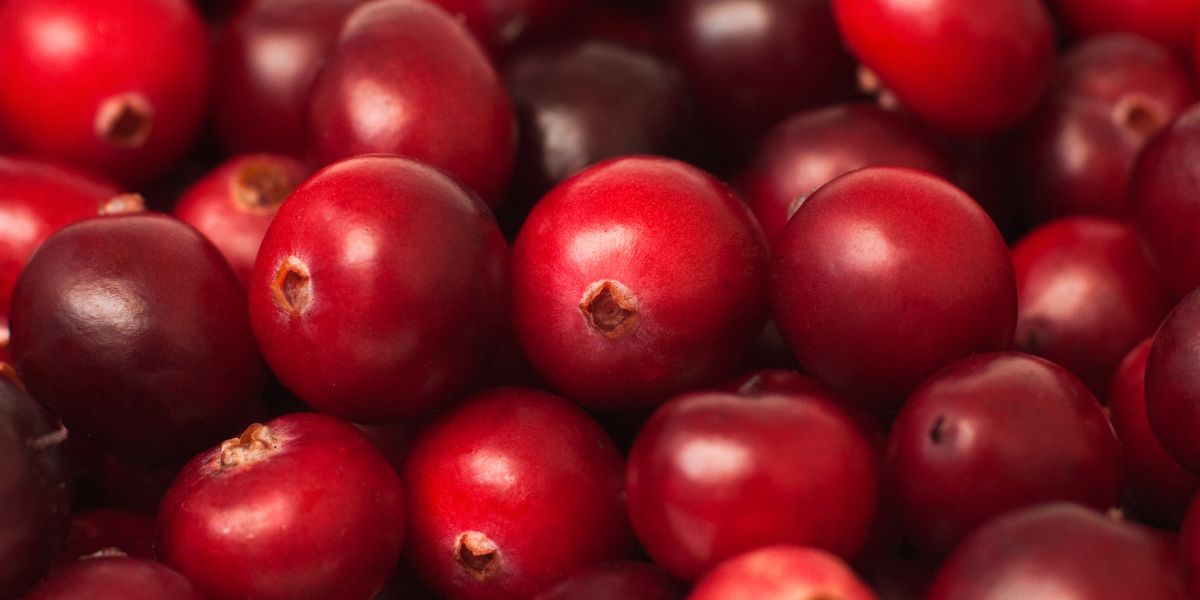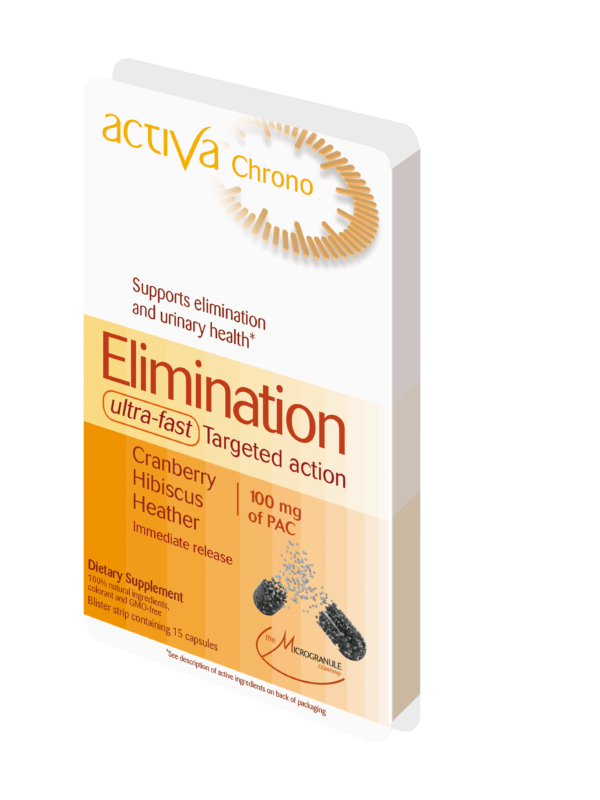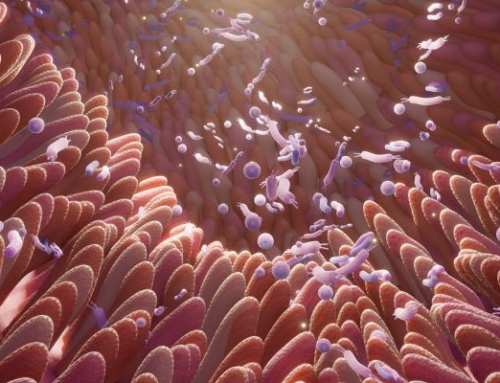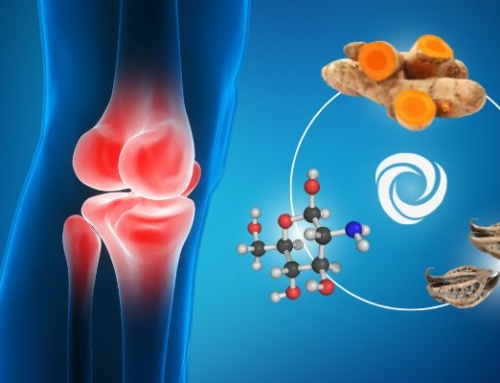Standardisation of Proanthocyanidins
in cranberry extracts, the durable solution
for Urinary Tract Infections

Common facts about Urinary Tract Infections
Urinary tract infections (UTI) or cystitis are the most common bacterial infections affecting women aged between 20 to 50 years old. They occur 50 times more in women than in men. Mainly because anatomy of the female urinary system greatly increases their risk. The female urethra, shorter than that of men, facilitates bacterial contamination of the bladder. Moreover, a “simple” intestinal or vaginal imbalance can create an ideal environment for the multiplication of bacteria which then easily reach the urethra.
Other factors such as sexual intercourse, pregnancy, oral contraception, fatigue, constipation, digestive candidiasis, etc. can contribute to Urinary tract infections.
What is a urinary infection?
A Urinary Tract Infection is defined by pain during urination (small tingling, discomfort or burning sensation as common symptoms) with or without fever. They are, most of the time, linked to an infection by the Escherichia Coli bacterium (E. coli). This bacteria colonises the urethra and moves to the bladder (cystitis). If it is not treated, the bacteria can move up to the kidney and the patient can develop pyelonephritis.
Recurrences: a real challenge
“Conventional” medicine can curb the infection with an antibiotic treatment, which if effective, will not prevent new occurrences. Frequent recurrences are one of the main problems of UTIs. While causing Urinary Tract Infections, the bacterium Escherichia Coli colonises the inside of the uroepithelial cells (bladder cells) and sticks to the wall of the mucous membranes (forming P-fimbriae): it allows the bacteria to defend itself against our immune system and resist to antibiotics.
In 20% of cases, after treatment with antibiotics, the long coli filaments emerge from the cells to generate a new infectious episode. It will then escalate to more recurrences: 30% of these women will experience the third infection, then 80% of these a fourth, etc.
Preventing these recurrences is thus extremely important. Implementing some simple but healthy habits such as drinking enough water, urinating after intercourse, and avoiding urine retention will be of great help but may not be enough.
Standardisation of PACs in cranberry extracts, the durable solution
For decades, cranberry consumption has been highly recommended to fight Urinary Tract Infection. In 2004 the claim that Cranberry “Helps reduce the attachment of certain E.coli bacteria to the walls of the urinary tract” was officialized by the European AFSSA (1).
These berries owe their properties to several molecules they contain such as hippuric acid, fructose, vitamin C and proanthocyanidins. A 1984 study (2) demonstrated that these, like an antibiotic, interfere with the adhesion of bacteria to the uroepithelial cells of the bladder wall by modifying the chemical composition of urine.
Studies & trials on Standardised PAC in Cranberry extracts
Recent trials have also proven that the anti-adhesion effects of cranberries are “immediate” and long-lasting, since they are felt two hours after consumption and can last up to ten hours. It would at the same time reduce the risk of recurrent infections by 40%.
In 2001, research was made on women with urinary tract infections(3) over a period of 12 months, established that the risk of recurrence was reduced by 20% in patients treated with cranberry concentrate.
A Canadian study published in 2002, randomised and prospectively compared three treatments (4) (cranberry juice, cranberry tablets and placebo treatments): the tablets and juice reduced in the same way the number of urinary tract infections by about 15% per year compared with the placebo group.
Finally, it has also been observed that the bacterium E. coli, which causes 80 to 90% of these infections, is becoming increasingly resistant to antibiotics, but that the antibacterial compounds in cranberries act on 80% of bacteria resistant to antibiotics.
You should also know cranberries contain different types of flavonoids, powerful antioxidants that neutralise free radicals in the body and thus prevent the onset of cardiovascular diseases, certain cancers and various diseases related to ageing.
Supplements containing Cranberry extract are widely available and are the go-to solutions for managing Urinary Tract Infections. However, to be effective, standardisation of the concentration of proanthocyanidins (PACs) in the cranberry extract is essential. Standardisation guarantees the quantity of the active part of the ingredient: in this case the PAC’s.
Cranberries are rich in A-type PACs, a category of proanthocyanidins that has been shown to have bacterial anti-adhesion benefits and help prevent urinary tract infections (UTIs). A multicentre randomized clinical trial (RCT) in adult women showed that a daily dose of 36 mg PACs or more provided an optimal antibacterial effect (5).
The Activa Solution supports the urinary sphere and prevent UTI recurrences 
Most supplements do not use standardised extracts and do not disclose the concentration of PACs.
Laboratoires Activa Chrono Elimination is designed to target specifically urinary infection with a dosage of 100mg of PAC. Combined with herbal extracts known for their antiseptic, anti-inflammatory, and antibacterial properties, it is the perfect combination for the quick action and fast relief of UTI.
Microgranule technology improves the bioavailability of the formula with a controlled release and gastro protection of the actives.
Sources:
[1] Avis de l’Afssa du 6 avril 2004, Saisine n°2003-SA-0352
[2] Howell AB, Foxman B. Cranberry Juice and Adhesion of Antibiotic-Resistant Uropathogens / JAMA (Journal of the American
Medical Association) / volume:287 (page: 3082) June 19, 2002
[3] Kontiokari T, Sundqvist K, Nuutinen M, Pokka T, Koskela M, Uhari M. Randomised trial of cranberry-lingonberry juice and
Lactobacillus GG drink for the prevention of urinary tract infections in women. BMJ. 2001;322:1571-1573
[4 Can J Urol, 2-Stothers, L. : A randomized trial to evaluate effectiveness and cost effectiveness of naturopathic cranberry
products as prophylaxis against urinary tract infection in women. 2002 Jun;9(3):1558-62.
[5] Standardised high dose versus low dose cranberry Proanthocyanidin extracts for the prevention of recurrent urinary tract infection in healthy women [PACCANN]: a double blind randomised controlled trial protocol | BMC Urology | Full Text







